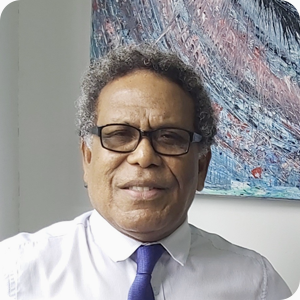“Get an education, and you will get a good job” – that was the rhetoric of several previous generations. However, advances in technology, societal priorities, and consumer behavior have given rise to new job opportunities that were not envisaged just a few decades ago. Moreover, according to various predictions, more than 50% of the jobs that today’s students will do in 2030 do not yet exist. So, will the skills that are being taught in schools today become obsolete within a few years? How can teachers prepare today’s students for future jobs that do not yet exist? Check out some expert opinions in this regard.
Key Takeaways:
- According to the World Economic Forum, AI is expected to replace 85 million jobs worldwide by 2025.
- Some skills may become obsolete over time due to automation, shifts in industry demands, or technological advancements.
- Experts are convinced that AI has the potential to create a classroom and education revolution.
- They also advise that teachers should prepare students by developing soft skills such as critical thinking, problem-solving, creativity, communication, collaboration, curiosity, resilience, empathy, and ethics.
DevelopmentAid: Will AI create a classroom and education revolution?

“Studies have shown that Artificial Intelligence (AI) in education has the potential to develop customized and contextual curricula that is more focused on new ways of teaching and learning. Many students, particularly from developed countries, have already started to benefit from the use of these technologies. However, with spatial as well as economic differences, millions of students around the world are deprived of such benefits. It is apparent that greater educational inequality will persist. We also experienced such inequalities in classroom delivery in schools during the COVID-19 pandemic. It is obvious that AI will not only create a classroom and education revolution in the days to come but will also bring critical challenges, particularly in accessing and building capacity/developing skills in using new technologies.”

“AI undoubtedly has the potential to create a revolution in the classroom and education, changing the ways that students learn and teachers teach. AI can solve routine tasks in just a few minutes that take ordinary people several hours or even days. This creates significant problems for teachers who are used to teaching according to the traditional system of transmitting theoretical information. Writing essays, theoretical research on humanities, all this is easy for AI, and sometimes it is impossible to check and recognize the text created by AI. Considering the development of AI, teachers will have to rebuild their methodology based on competency-based learning. At the same time, AI can personalize learning, support students’ creativity, and provide new ideas. AI can also help teachers to save time, improve their teaching activities, and facilitate access to professional development. Of course, AI also creates problems and risks, such as ethical, social, and technical issues, that need to be addressed by both policy-makers and teachers and other stakeholders. Therefore, AI should be used as a tool to complement and enhance human intelligence, not to replace it.”

“It will be a theater with two performing stages, whose performances will be choreographed against these questions: “What will the education of the future look like” and “What will the future of education look like”. On one hand, considering that the education classroom of the future will be virtual, face-to-face-person-less, llearner-in-time-curriculum-led big data-driven, and machine-led, AI will play a role in the future of education. The question is in what form and extent? This leads to another observation that the university of the future will be virtual, demonetised and paperless. Conversely, answering the first question will lead to creating the answers to the second question.”

“AI has taken on the level of advancement in technology, which has always been in the realm of applying systematic knowledge to develop devices and methods to help solve problems and reduce time and energy spent on achieving results. Then, AI would create the type of education revolution change that came with typewriter and computer ubiquitous use. Teachers should learn about and the use of AI for relevance to influence the students to use AI would create a change with time as its programming design moves towards ubiquitous rather than selective use.”

“AI can revolutionize education. AI-driven personalized studying can adapt to each scholar’s needs, presenting a more dynamic and powerful academic level. Virtual and augmented fact technology can create immersive knowledge of environments, making training more attractive and applicable to the evolving task panorama.”

“AI has the potential to create a classroom and education revolution. Firstly, AI can analyze student data to create personalized learning plans for each student. Students can learn at their own pace and focus on the topics they need the most help with. Secondly, AI-powered tutors can provide personalized feedback and instruction to students which can help students to master concepts more quickly and easily. AI can create immersive learning experiences that make learning more engaging and effective. For example, students can use VR to explore historical sites or learn about the human body. Finally, AI chatbots can answer students’ questions and provide support. The use of teachers’ time could improve, meaning they can focus on more personalized instruction. Above all, as AI technology continues to develop, we can expect to see even more innovative and effective ways to use AI in education.”
DevelopmentAid: How should teachers prepare students for jobs that do not yet exist?

“Teachers should prepare students for jobs that don’t yet exist by focusing on developing their core competencies and values, rather than specific knowledge and skills. These competencies and values include developing soft skills such as critical thinking, problem-solving, creativity, communication, collaboration, curiosity, resilience, empathy, and ethics. Teachers should also foster students’ agency and awareness of their own strengths, interests, and goals. Teachers should use pedagogy that is learner-centered, based on cutting-edge research and projects, and also give them an understanding of the integration of technology and AI. Teachers should also introduce students to diverse and interdisciplinary fields of knowledge and practice and encourage them to explore and experiment.”

“In view of the vast potential of AI in higher education, particularly in the context of its contribution to replace or assist faculty members, studies have found and concluded a comprehensive perspective on the future role of educators in advancing AI technologies. Furthermore, the findings also suggest that although some believe that AI may eventually replace teaching and non-teaching staff, it could be argued that human resources possess unique qualities such as critical thinking, creativity, and emotions, which make them irreplaceable. And this debate will continue for a long time. It is inevitable that, as the need to effectively integrate AI to enhance teaching and learning proliferates, the understanding of teachers, students, and the management of institutions of higher education about how AI can work well with teachers and students in order to prepare students for jobs that don’t exist at present becomes highly imperative. It will also require refining teaching skills, designing new curriculums and developing AI literacy to address practical issues – data protection, ethics, and privacy.”

“On one hand, it starts with teacher training – now. So, I would put the question like this: “How should we prepare the teachers now in a way that will enable them to prepare students for jobs in the future?” Conversely, it starts with the bigger questions of “What will the future of jobs be like” and “What will the jobs of the future be like”? It is the questions that we asked around these questions that should inform how teacher training should now be crafted. Therefore, we cannot be talking about a revolution, it will just be the future of education, AI and teaching which has already occurred. The question is, are we factoring these futures into what we do now?”

“A trend that has gained ground in problem-solving among young people is the idea of solving it as you go instead of thinking it through before you launch. Teachers need to get back to being project managers who not only understand and teach the conceptual framework but also know and teach the application. This is by incorporating into teaching how to apply and contextualize through hands-on sessions so that education becomes a drive to improve and build service to the community.”

“Educators must recognize the importance of coaching adaptable abilities to prepare students for the unknown job landscape of the future. Critical thinking, problem-solving, creativity, and emotional intelligence will be crucial regardless of the job. Encouraging a growth mindset, fostering curiosity, and promoting lifelong learning will empower students to thrive in careers that haven’t even been imagined yet.”

“Teachers can prepare students for jobs that don’t yet exist by focusing on the following skills: critical thinking and problem-solving are essential for any job, regardless of the tasks involved. Teachers can help students to develop these skills by providing opportunities to think critically about problems and think of creative solutions. The capacity to think outside the box and find new ideas will become increasingly important in years to come. Teachers can encourage creativity and innovation by giving students open-ended projects and challenges. Communication and collaboration are essential for working effectively with others and are vital aspects of many jobs. Teachers can help students to develop these skills by providing opportunities to work on projects and communicate their ideas clearly. The ability to understand and interpret data will be essential in many jobs. Teachers can help students to develop data literacy skills by teaching how to collect, analyze, and interpret data. Technology is rapidly changing the world of work, so it’s vital for students to be proficient in using technology. Teachers can help students develop technology skills by incorporating technology into their lessons and providing students with opportunities to learn how to use different technologies. Finally, the capacity to adapt to change will be essential, especially as the nature of work continues to evolve. Teachers can help students to develop adaptability and flexibility by teaching them to learn quickly and be open to new ideas.”
In a world where the job market is constantly changing, all possible resources need to be leveraged in order to stay ahead of the competition. By becoming an Individual Professional Member today, you can have at your fingertips a multitude of useful tools, including tenders and grants for individuals, over nine thousand job opportunities in the international development sector, access to organizations’ contact details, and many other options!


